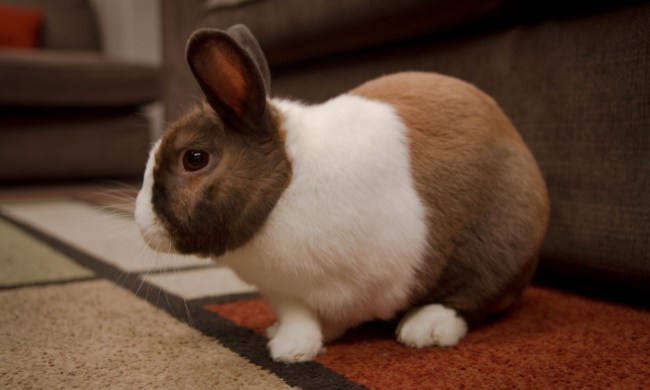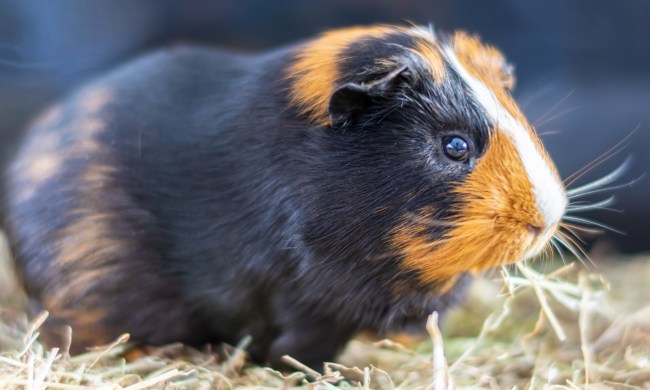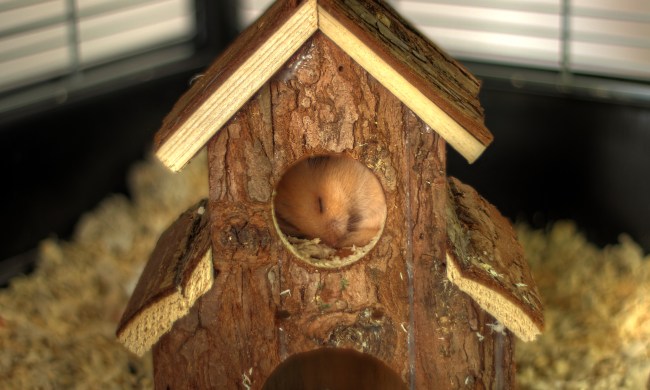Know this before getting a guinea pig: they love to do nothing more than talk. All. Day. Long. You’ll notice them talking to each other, to you, and occasionally to nothing at all. These little chatterers not only speak a lot but they also communicate using all sorts of different sounds. One moment you might see your piggie wheeking and popcorning and the next you catch him chattering his teeth. It can be tricky to keep track of every squeak, chuff, and whimper, but you will start to pick up on some of his vocabulary. And one of the best noises you can hear from any pet is purring. What does it mean when guinea pigs purr? Like so many aspects of pet ownership, it’s complicated, and can indicate a few different things.
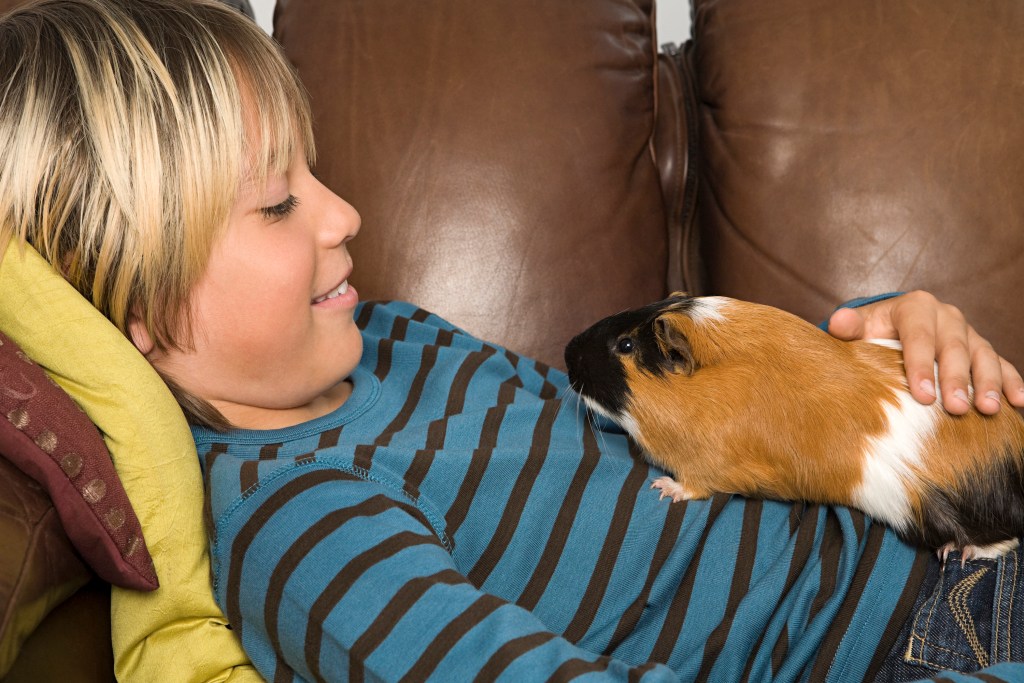
Is guinea-pig purring good or bad?
Well, it can go either way – sometimes purring means happiness and contentment, and other times fear and anxiety. You’ll have to listen carefully to determine the feeling behind the sound and act accordingly. Take stock of your surroundings and try to pinpoint a source for the purring. For example, if you’re gently petting your animal and hear the sound, similar to a cat’s, that’s almost certainly a sign of happiness. A short barking purr typically comes from an animal in distress, though. Hopefully, you learn to pinpoint when it’s a good thing and when it means he’s mad.
What does it mean when a guinea pig purrs?
As mentioned, the first step when you hear purring is to check around and see what might have caused your pig to utter this sound. If he doesn’t like the attention he’s getting, you will likely feel him wriggling away from you, trying to escape. That means he needs a minute to himself and you should give him space while he chills out a bit. A happy purr, on the other hand, means simply “keep petting me.”
How do I know if my guinea pig is happy?
A contented purr will certainly clue you in to your pig’s state of mind. There are a few other things you can look for, both postures and sounds. The aforementioned popcorning – when a guinea leaps gleefully into the air repeatedly – nearly always means that your pet is excited. This usually comes when you have food on the way and he can’t wait to have his snack. You may also sometimes feel a happy quiver of excitement and pleasure to go along with either of these other actions. These definitely tell you that you have one happy little guy.
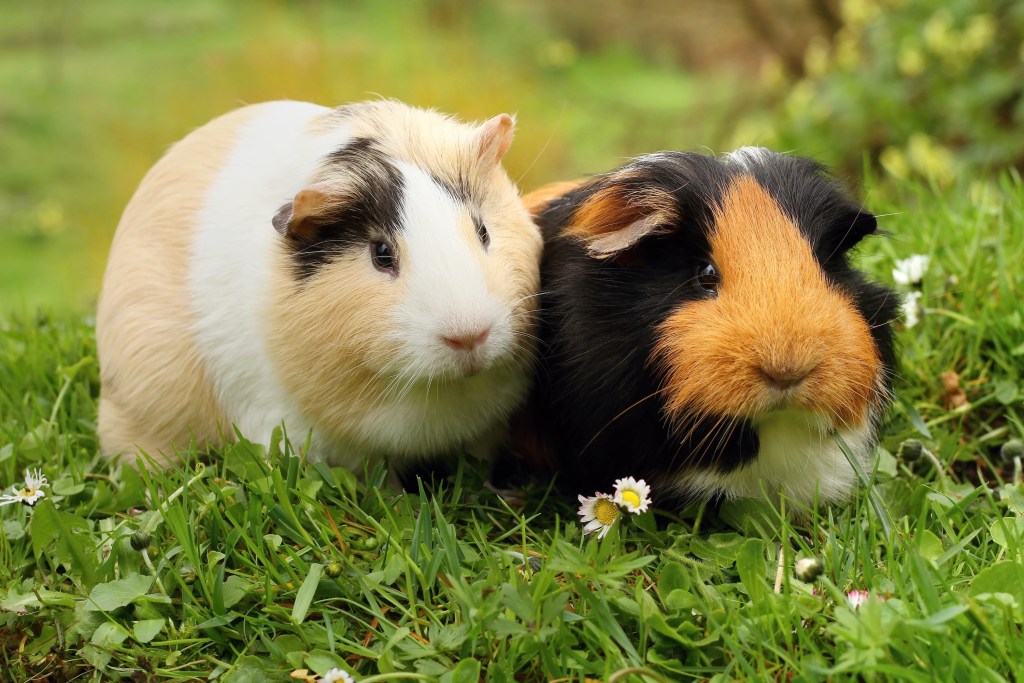
What sounds should I watch out for?
While occasionally purring stems from unhappiness, some vocalizations always mean a bad thing. A couple of these we don’t even have to tell you – it will immediately be obvious that your guinea pig is angry. The shriek and growl certainly fall into that category. Counterintuitively, oftentimes when this cute rodent feels scared, he may freeze and stay as still as possible. This is because, in the face of predators, he will try to sit so still that he blends into the surroundings, effectively disappearing. But one other sound that often comes up is teeth chattering, which happens when he feels angry. He will often make this noise when a new animal has come into the home, as a sign of dominance. As long as the interloper realizes that the original guinea pig is in charge, this will go away quickly.
Be patient with your furry friend
At first, it will seem like you need an entire dictionary to speak guinea pigs’ language, but we guarantee you’ll start to pick it up right away. Remember all pigs, like humans, have their own unique way of speaking, including their own slang and hand movements to go along with it. Learn your pet’s style to get a deeper understanding of what he wants you to pick up. Also, since this species comes in pairs (or herds), you can observe them interacting with their own kind and therefore expand your own vocabulary to match theirs. Do try to suss out quickly which sounds lead up to your pets nipping or starting an argument with each other (if that happens at first) so you can better intervene. With time, though, you’ll have your whole guinea-pig group purring every time you walk to the cage.

